Category
- Discounted Books
- English Book Bundles
- University Magazines
- சிறுவர்களுக்கான புத்தகங்கள்
- Children Books
- English Books
- Current Affairs
- Military & Intelligence
- Short Stories
- Fiction
- Poetry
- Environment & Nature
- Science
- Medicine
- Linguistics
- Atheism & Agnosticism
- (Auto)Biography & Memoir
- Business & Management
- Creativity
- Economics
- Education & Research
- Health & Nutrition
- History
- Humor
- Love & Relationships
- Parenting
- Personal Development
- Personal Finance
- Philosophy
- Politics
- War
- Psychology
- Religion & Spirituality
- Society & Culture
- Sports
- Travel & Adventure
- Technology & the Future
- True Crime
- Women Empowerment
- தமிழ் Books
- Book Bundles ( தமிழ் )
- சட்டம்
- இயற்கை
- கட்டுரை
- கணிதம்
- பயணக்குறிப்புகள்
- விவசாயம்
- அரசியல்
- ஆரோக்கியம்
- உளவியல்
- புனைவு
- காதல் மற்றும் உறவு
- சமூகவியல்
- சுயசரிதைகள் மற்றும் நினைவுகள்
- சுயமுன்னேற்றம்
- தத்துவஞானம்
- தொழில்நுட்பம் & எதிர்காலம்
- பொருளாதாரம்
- போர்
- பணம்
- மதம் & ஆன்மீகம்
- வணிகம் & மேலாண்மை
- வரலாறு
- விஞ்ஞானம் & பிரபல அறிவியல்
- விளையாட்டு
- சினிமா
- கவிதைகள்
- குழந்தை வளர்ப்பு
- குற்றம்
- மருத்துவம்
- மொழி
Product categories
- Children Books
- Discounted Books
- English Book Bundles
- English Books
- (Auto)Biography & Memoir
- Atheism & Agnosticism
- Business & Management
- Creativity
- Current Affairs
- Economics
- Education & Research
- Environment & Nature
- Fiction
- Health & Nutrition
- History
- Humor
- Linguistics
- Love & Relationships
- Medicine
- Military & Intelligence
- Parenting
- Personal Development
- Personal Finance
- Philosophy
- Poetry
- Politics
- Psychology
- Religion & Spirituality
- Science
- Short Stories
- Society & Culture
- Sports
- Technology & the Future
- Travel & Adventure
- True Crime
- War
- Women Empowerment
- University Magazines
- சிறுவர்களுக்கான புத்தகங்கள்
- தமிழ் Books
- Book Bundles ( தமிழ் )
- அரசியல்
- ஆரோக்கியம்
- இயற்கை
- உளவியல்
- கட்டுரை
- கணிதம்
- கவிதைகள்
- காதல் மற்றும் உறவு
- குற்றம்
- குழந்தை வளர்ப்பு
- சட்டம்
- சமூகவியல்
- சினிமா
- சுயசரிதைகள் மற்றும் நினைவுகள்
- சுயமுன்னேற்றம்
- தத்துவஞானம்
- தொழில்நுட்பம் & எதிர்காலம்
- பணம்
- பயணக்குறிப்புகள்
- புனைவு
- பொருளாதாரம்
- போர்
- மதம் & ஆன்மீகம்
- மருத்துவம்
- மொழி
- வணிகம் & மேலாண்மை
- வரலாறு
- விஞ்ஞானம் & பிரபல அறிவியல்
- விளையாட்டு
- விவசாயம்
How Fascism Works: The Politics of Us and Them
Rs. 3,290.00

Jason Stanley
- NEW YORK TIMES BOOK REVIEW EDITORS’ CHOICE
“By placing Trump in transnational and transhistorical perspective, Stanley sees patterns that others miss. . . . Stanley’s comparative perspective is particularly effective in illustrating how fascists use fears of sexual violence. . . . By calling Trump a ‘fascist’—a word that strikes many Americans as alien and extreme—Stanley is trying to spark public alarm. He doesn’t want Americans to respond to Trump’s racist, authoritarian offensives by moving their moral goal posts. The greater danger, he suggests, isn’t hyperbole, it’s normalization.”—The New York Times Book Review (Editors’ Choice)
“Jason Stanley’s staggering analysis has only grown in importance since the release of How Fascism Works in 2018. It is one of the defining books of the decade.”—Elizabeth Hinton, author of From the War on Poverty to the War on Crime
Fascist politics are running rampant in America today—and spreading around the world. A Yale philosopher identifies the ten pillars of fascist politics, and charts their horrifying rise and deep history.
As the child of refugees of World War II Europe and a renowned philosopher and scholar of propaganda, Jason Stanley has a deep understanding of how democratic societies can be vulnerable to fascism: Nations don’t have to be fascist to suffer from fascist politics. In fact, fascism’s roots have been present in the United States for more than a century. Alarmed by the pervasive rise of fascist tactics both at home and around the globe, Stanley focuses here on the structures that unite them, laying out and analyzing the ten pillars of fascist politics—the language and beliefs that separate people into an “us” and a “them.” He knits together reflections on history, philosophy, sociology, and critical race theory with stories from contemporary Hungary, Poland, India, Myanmar, and the United States, among other nations.
He makes clear the immense danger of underestimating the cumulative power of these tactics, which include exploiting a mythic version of a nation’s past; propaganda that twists the language of democratic ideals against themselves; anti-intellectualism directed against universities and experts; law and order politics predicated on the assumption that members of minority groups are criminals; and fierce attacks on labor groups and welfare. These mechanisms all build on one another, creating and reinforcing divisions and shaping a society vulnerable to the appeals of authoritarian leadership.
By uncovering disturbing patterns that are as prevalent today as ever, Stanley reveals that the stuff of politics—charged by rhetoric and myth—can quickly become policy and reality. Only by recognizing fascists politics, he argues, may we resist its most harmful effects and return to democratic ideals.
“With unsettling insight and disturbing clarity, How Fascism Works is an essential guidebook to our current national dilemma of democracy vs. authoritarianism.”—William Jelani Cobb, author of The Substance of Hope
Out of stock
Notify me when stock available
About the Author
Book Specifications
Binding: Hardcover
Pages: 240
Published Year: 2018
Publisher: Random House
ISBN: 9780525511830
Related products
-
The Price of Inequality
Rs. 3,690.00Original price was: Rs. 3,690.00.Rs. 2,590.00Current price is: Rs. 2,590.00.or 3 X Rs.863.33 with Read more
Read moreJoseph Stiglitz
A forceful argument against America’s vicious circle of growing inequality by the Nobel Prize–winning economist.
“A definitive examination of inequality’s effects not only on the economy, but on democracy and globalization.”
― The Daily Beast“Stiglitz’s ideas in this book will prompt wide discussion and debate.”
― Booklist“An impassioned argument backed by rigorous economic analysis.”
― Kirkus Reviews (starred review)“The single most comprehensive counterargument to both Democratic neoliberalism and Republican laissez-faire theories…Stiglitz’s contribution…to the public debate cannot be overestimated.”
― Thomas B. Edsall, New York Times Book Review“A model of clarity.”
― Jared Bernstein, Rolling Stone -
Pathways to Greatness: Coming Together for Change
Rs. 2,190.00Original price was: Rs. 2,190.00.Rs. 1,990.00Current price is: Rs. 1,990.00.or 3 X Rs.663.33 with Read more
Read moreA.P.J. Abdul Kalam
What makes a nation great? Is it simply economic prosperity and military strength — or something more? What is it that we as a nation require to make that last-mile journey to what all the plans, investments and projects are meant to lead up to?
It is only a matter of time before India is termed economically developed. But a nation has to learn to survive in tough times too. And for that what is most important is national character, born out of the value systems that exist in our families, what schools teach students, and the culture of the nation.
In Pathways to Greatness, A.P.J. Abdul Kalam shifts focus from the economic development of India by 2020 to the development of our strengths, offering key lessons that will help India withstand the forces of change. He identifies what makes a nation great and also compares the standards of living of other nations with India’s. He draws on his travels and his interactions with people. He evolves unique oaths for citizens from all walks of life to ensure that a better life becomes possible for everyone.In the book he completed just a few months before he passed away in 2015, one of India’s best-known icons writes how our nation can become a leader on the pathways to greatness.
-
Emil Ludwig’s Napoleon
Rs. 2,990.00Original price was: Rs. 2,990.00.Rs. 2,190.00Current price is: Rs. 2,190.00.or 3 X Rs.730.00 with Read more
Read more“Ludwig’s book is a classic for a reason. His interpretation of Napoleon is both sympathetic and critical, and he manages to shed light on both the man and the historical context in which he lived. While there have been many biographies of Napoleon over the years, Ludwig’s remains one of the best.” – Barnes & Noble review
The story of Napoleon produces on me an impression like that produced by the revelation of Saint John the Divine. We all feel there must be something more in it, but we d not know what. — GOETHE
-
Mossad: The Great Operations of Israel’s Secret Service
Rs. 2,690.00or 3 X Rs.896.67 with Read more
Read moreMichael Bar-Zohar & Nissim Mishal
The Mossad is universally recognized today as the greatest intelligence service in the world. It is also the most enigmatic one, shrouded in a thick veil of secrecy. Many of its fascinating feats are still unknown; most of its heroes remain unnamed. Here, for the first time the veil is lifted by two Israeli authors.
From the famous cases – – the kidnapping of Eichmann from Argentina, the systematic tracking down of those responsible for the Munich Massacre – to lesser-known episodes, shrouded in darkness, this extraordinary book describes the dramatic, largely secret history of the Mossad, and the Israeli intelligence community. It examines the covert operations, the targeted assassinations, the paramilitary operations within and outside Israel. It also reveals the identities of the best Mossad agents and leaders, whose personal stories are interwoven with the great Mossad operations.
-
Churchill: Walking with Destiny
Rs. 3,290.00or 3 X Rs.1,096.67 with Read more
Read moreAndrew Roberts
- THE INTERNATIONAL BESTSELLER
- SUNDAY TIMES BOOK OF THE YEAR
- THE TIMES BOOK OF THE YEAR
- ECONOMIST BOOK OF THE YEAR
- DAILY TELEGRAPH BOOK OF THE YEAR
- EVENING STANDARD BOOK OF THE YEAR
- OBSERVER BOOK OF THE YEAR
- Arthur Ross Book Award Nominee (2019)
This terrific book, which bursts with character, humour and incident on almost every page … is undoubtedly the best single-volume life of Churchill ever written — Dominic Sandbrook ― Sunday Times
A stupendous achievement: lucid, erudite, intelligent, but also inspiring. Roberts catches the imperishable grandeur of Churchill’s life as no other historian has done — Daniel Johnson ― Standpoint
As Andrew Roberts reminds us in this epic biography … Churchill’s career provides ample proof that fact can be far more extraordinary than fiction — Nick Rennison ― Daily Mail
Brilliant, breathtaking, unputdownable … All Roberts’s past life has been but a preparation for this hour and this work, and this brilliant book is a fitting crown to his own career — Michael Gove ― Evening Standard
-
The Wealth of Nations
Rs. 4,290.00or 3 X Rs.1,430.00 with Add to cart
Add to cartAdam Smith
Explore the cornerstone of modern economic thought with Adam Smith’s groundbreaking work, “The Wealth of Nations.”
Delve into Smith’s timeless analysis of economics and capitalism, as he examines the principles of division of labor, free markets, and the invisible hand. This seminal text continues to shape our understanding of wealth creation and economic systems, making it essential reading for students, scholars, and anyone interested in the complexities of economic theory. Gain profound insights into the mechanisms driving wealth and prosperity in society. Order your copy of “The Wealth of Nations” now and embark on a journey through the foundations of modern economics!
“Adam Smith’s enormous authority resides, in the end, in the same property that we discover in Marx: not in any ideology, but in an effort to see to the bottom of things.”
—Robert L. HeilbronerRight from examining the division of labour, the origin and use of money and the division of stock, to the rise and progress of cities and towns after the fall of the Roman Empire, the systems of political economy and the taxes on various private revenues, Adam Smith’s The Wealth of Nations provides an extensive assessment of the creation of a nation’s wealth. Laying the foundation of classical political economy, this magnum opus is considered one of the best non-fiction books of all time. More than two centuries after its first publication in 1776, The Wealth of Nations continues to remain as influential as ever.
-
The Story of Che Guevara
Rs. 2,890.00or 3 X Rs.963.33 with Read more
Read moreLucía Álvarez de Toledo
‘Lucía Álvarez de Toledo captures the essence of Che the man with a heart-warming and inspirational text … a most rewarding book, whose significance should not be underestimated’ ― Morning Star
An accessible biography of one of the most influential figures of recent times based on new, original research.
Che Guevara is something of a symbol in the West. But for the rest of the world he is different: a charismatic revolutionary who redrew the political map of Latin America and gave hope to those resisting colonialism everywhere. In The Story of Che Guevara Lucía Álvarez de Toledo follows Che from his birth in Rosario and his early years in his parent’s maté plantation, to his immortal motorcycle journeys across South America, his role at the heart of Castro’s new Cuban government, and through to the unforgiving jungle that formed the backdrop to his doomed campaigns in the Congo and Bolivia.
Based on interviews with Che’s family and those who knew him intimately, this is an accessible biography that concentrates on the man rather than the icon. With the political developments in Latin America in the twenty-first century, his influence can be seen to be even greater than it was during his lifetime and The Story of Che Guevara is a perfect introduction to an extraordinary man.
-
Capital (Das Capital)
Rs. 4,490.00or 3 X Rs.1,496.67 with Read more
Read moreKarl Marx
Capital is a critical analysis of capitalism as political economy and how it is the precursor of the socialist mode of production. Karl Marx proposes that the motivating force of capitalism is in the exploitation of labour, whose unpaid work is the ultimate source of profit and surplus value. The employer can claim right to the profits (new output value), because he or she owns the productive capital assets (means of production), which are legally protected by the State through property rights. In producing capital (money) rather than commodities (goods and services), the workers continually reproduce the economic conditions by which they labour. Capital proposes an explanation of the “laws of motion” of the capitalist economic system, from its origins to its future, by describing the dynamics of the accumulation of capital, the growth of wage labour, the transformation of the workplace, the concentration of capital, commercial competition, the banking system, the decline of the profit rate and land-rents.
-
Sapiens: A Brief History of Humankind
Rs. 3,590.00or 3 X Rs.1,196.67 with Read more
Read moreYuval Noah Harari
- Royal Society of Biology General Book Prize Nominee (2015)
- **ONE OF THE GUARDIAN‘S 100 BEST BOOKS OF THE 21st CENTURY**
- **THE MULTI-MILLION COPY BESTSELLER**
- #1 New York Times Bestseller
- J. A. Hollon palkinto (2017)
- The Summer Reading Pick for President Barack Obama, Bill Gates, and Mark Zuckerberg.
“I would recommend this book to anyone interested in a fun, engaging look at early human history… You’ll have a hard time putting it down” –Bill Gates
Interesting and provocative… It gives you a sense of how briefly we’ve been on this Earth ― Barack Obama
Jaw-dropping from the first word to the last… It may be the best book I’ve ever read ― Chris Evans
Tackles the biggest questions of history and the modern world… Written in unforgettably vivid language ― Jared Diamond
Startling… It changes the way you look at the world ― Simon Mayo
One of the best books I’ve read recently… Gives an excellent overview of how our species has developed ― Lily Cole
Sweeps the cobwebs out of your brain… Radiates power and clarity, making the world strange and new ― Sunday Times
Sapiens is packed with heretical thinking and surprising facts. This riveting, myth-busting book cannot be summarised in any detail; you will simply have to read it — John Gray ― Financial Times
-
Ten Lessons for a Post-Pandemic World
Rs. 2,890.00Original price was: Rs. 2,890.00.Rs. 2,490.00Current price is: Rs. 2,490.00.or 3 X Rs.830.00 with Read more
Read moreFareed Zakaria
Since the end of the Cold War, the world has been shaken to its core three times. 11 September 2001, the financial collapse of 2008 and – most of all – Covid-19. Each was an asymmetric threat, set in motion by something seemingly small, and different from anything the world had experienced before. Lenin is supposed to have said, ‘There are decades when nothing happens and weeks when decades happen.’ This is one of those times when history has sped up.
In this urgent and timely book, Fareed Zakaria, one of the ‘top ten global thinkers of the last decade’ (Foreign Policy), foresees the nature of a post-pandemic world: the political, social, technological and economic consequences that may take years to unfold. In ten surprising, hopeful ‘lessons’, he writes about the acceleration of natural and biological risks, the obsolescence of the old political categories of right and left, the rise of ‘digital life’, the future of globalization and an emerging world order split between the United States and China. He invites us to think about how we are truly social animals with community embedded in our nature, and, above all, the degree to which nothing is written – the future is truly in our own hands.
Ten Lessons for a Post-Pandemic World speaks to past, present and future, and will become an enduring reflection on life in the early twenty-first century.

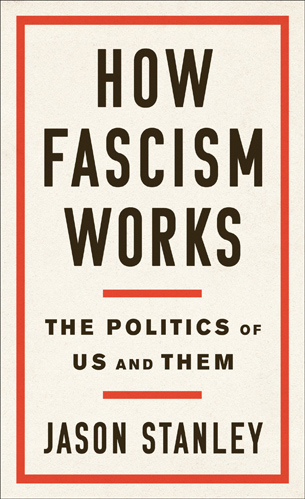
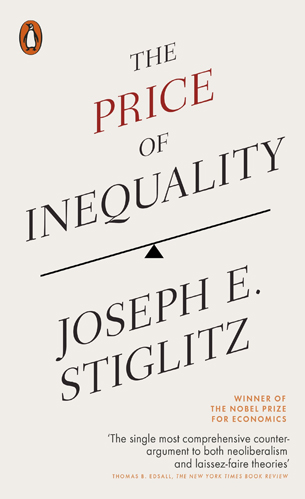


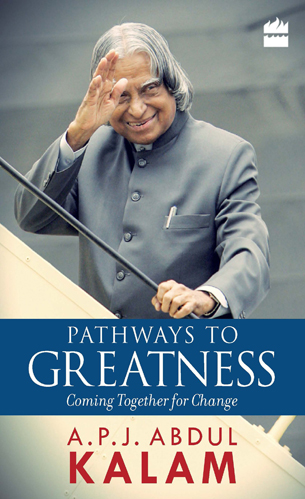


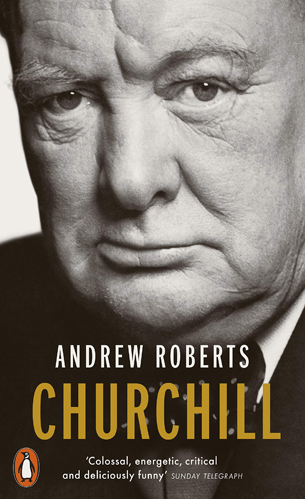
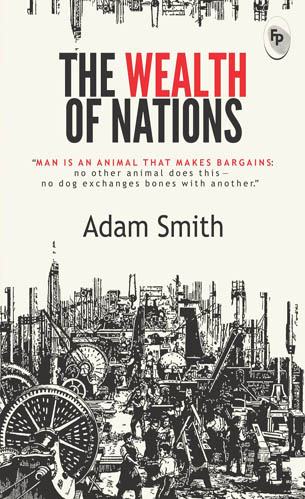
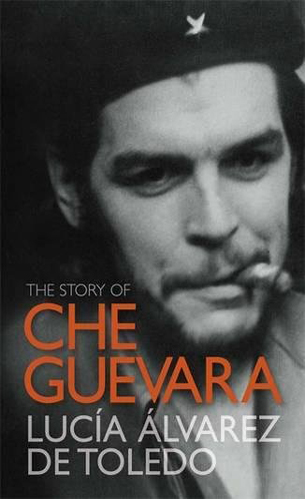
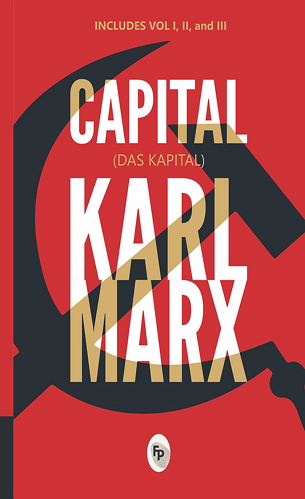


Reviews
There are no reviews yet.